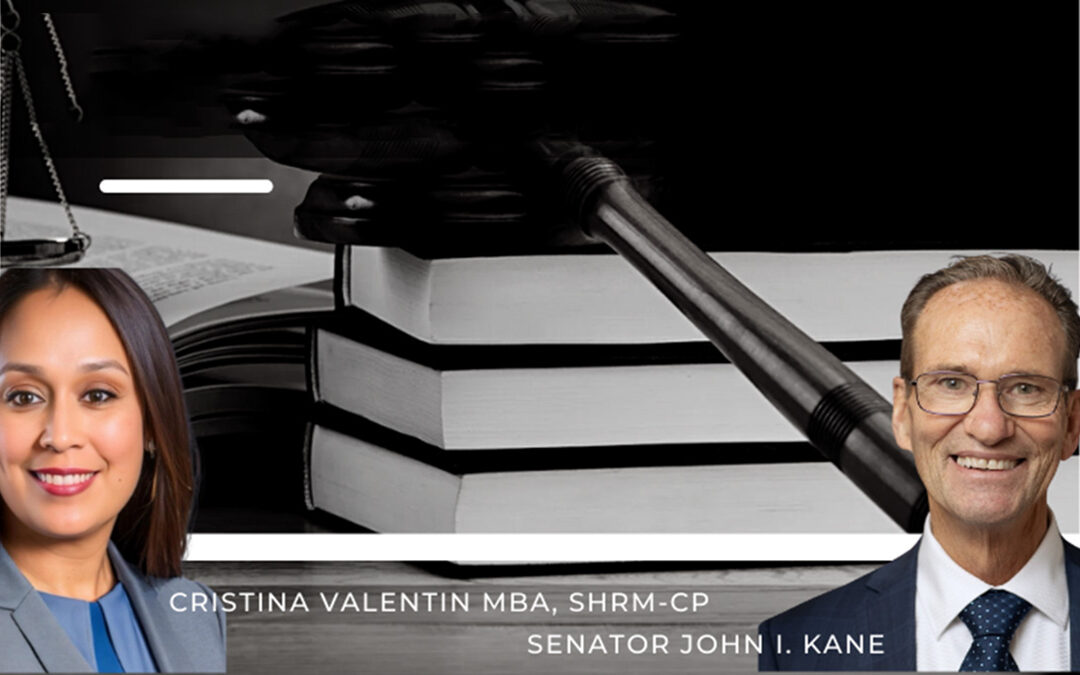By: Cristina Valentin MBA, SHRM-CP
As a survivor of domestic violence, I have navigated the harrowing process of obtaining a Protection From Abuse (PFA) order. I endured multiple court appearances, testified via phone after an assault, and provided extensive evidence—pictures, testimonies, and detailed accounts to secure both temporary and permanent PFAs lasting three years. Despite the personal trauma and invasive nature of this process, I successfully demonstrated the severity of my situation.
However, this experience has demonstrated a troubling gap in our legal system: the inadequacy of existing laws to prevent financial abuse during divorce proceedings. My ex-husband’s immediate response was to file for spousal support before I even initiated divorce or custody proceedings. While I was recovering from the abuse, he was plotting to access my hard-earned income. Despite being the cause of our marriage’s dissolution, he sought financial compensation from me, leaving me without child support.
This scenario raises critical questions about the efficacy of our current legal framework. If I provided sufficient evidence to secure a three-year PFA, why wasn’t that same evidence enough to prevent APL (Alimony Pendente Lite) in my case? This law in the divorce code (Section 3702) needs urgent reform to address these financial injustices and close the loopholes that allow for such exploitation.
Family dynamics have changed significantly since the 1960s. Today, female breadwinners make up 45% of families, compared to just 11% in 1960. The percentage of married mothers in the workforce rose from 57% in 1976 to 70% in 2017. This shift has been accompanied by higher divorce rates and increased vulnerability to domestic abuse for female breadwinners—35% more likely to experience abuse and 50% more likely to divorce. The increasing number of PFAs reflects these changing realities and the heightened awareness of domestic violence.
I found myself a newly single mother of three young children, not only battling my abusive ex-husband in court but also facing systemic bullying from a judicial system that left me in financial ruins. Despite working full-time and being the sole provider for my children, $1,600 a month was garnished from my paycheck and sent to my abuser.
The proposal of APL Reform Legislation – Senate Bill 1329 was referred to the Senate Judiciary Committee and aims to incorporate PFA and harassment history into APL support proceedings. This approach is crucial to preventing manifest injustices faced by families undergoing divorce. It seeks to ensure that laws evolve with changing family dynamics and adequately protect victims of domestic violence from financial abuse.
Senator Kane has consistently demonstrated his strong support for domestic violence initiatives, which serves as a foundation for his advocacy for APL Reform Legislation. His efforts, such as SB385, which provides postconviction relief for domestic violence survivors, and SB388, which enhances education on dating and domestic violence in schools, highlight his unwavering commitment to protecting victims. Moreover, his backing of studies that examine the impact of these issues on students reinforces his dedication to informed policymaking and ensuring that survivors receive the support they need.
In championing the proposed APL Reform Legislation, Senator Kane recognizes the urgent need to address the financial injustices that survivors face during divorce proceedings. He understands that the current legal framework, under the designation of “manifest injustice,” fails to protect those in need, leaving victims vulnerable to further exploitation. By advocating for reforms that take into account any Protection From Abuse (PFA) orders and harassment histories in Alimony Pendente Lite support decisions, he aims to eliminate legal gaps that allow these injustices to persist during a survivor’s most fragile moments. This commitment reflects his broader dedication to creating an equitable legal system that prioritizes the needs of survivors, ultimately fostering a safer environment for all families.
In summary, the current legislation does not fully account for the complexities of modern family structures and the realities faced by victims of abuse. Reform is essential to close existing loopholes and ensure that our legal system serves justice effectively. This bill represents a crucial step toward achieving fairness and protection for all individuals navigating the challenging waters of divorce and domestic violence.
Citations:
American Progress: American Progress. (2020, March 10). Breadwinning mothers continue to be the U.S. norm. Center for American Progress. https://www.americanprogress.org/article/breadwinning-mothers-continue-u-s-norm/
Women’s Agenda: Women’s Agenda. (2023, March 15). Men’s violence and emotional abuse against women increases when women become breadwinners. Women’s Agenda. https://womensagenda.com.au/latest/mens-violence-and-emotional-abuse-against-women-increases-when-women-become-breadwinners/
Psychology Today: Rehm, R. (2020, May 13). Are female breadwinners at greater risk for spousal abuse? Psychology Today. https://www.psychologytoday.com/us/blog/why-bad-looks-good/202005/are-female-breadwinners-at-greater-risk-for-spousal-abuse
MKFMLaw: MKFMLaw. (2023, July 8). Divorce rates higher with women breadwinners. MKFMLaw. https://www.mkfmlaw.com/blog/divorce-rates-higher-with-women-breadwinners

